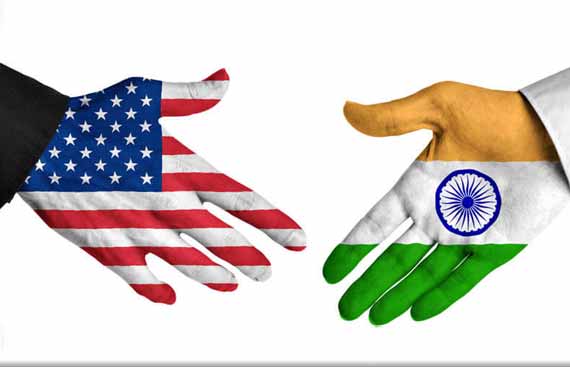The US Congress Endorses India-US relations

A threat of CAATSA sanctions against India has been unproductive and detrimental to American interests. If the U.S. Senate votes on the amendment, it is expected to pass with massive support
The US House of Representatives paved the path for the Biden administration to give an India-specific waiver under the Countering America's Adversaries Through Sanctions Act (CAATSA), removing a possible obstacle in India-US relations. According to Secretary of State Antony Blinken, India can now be exempted from CAATSA sanctions
Supporters of the amendment to the National Defense Authorization Act (NDAA) 2023 that requested the waiver for India argued that the goal of CAATSA was to penalize the adversaries of the United States, not its allies. As India confronts "immediate and significant" threats from neighbouring countries, according to Indian-American Democratic congressman from California Ro Khanna, India must preserve its Russian weapons.
Threatening India with CAATSA sanctions would have been self-defeating and unhelpful for American interests. The amendment is anticipated to receive resounding approval if it is put to a vote in the U.S. Senate. However, it seems probable that the Biden administration will follow the House of Representatives' example and reestablish ties with India without the need to wait for a Senate vote. Congress didn't consider the possibility of harming India, a crucial partner of the United States in the Indo-Pacific strategy.
India and Russia agreed on a USD 5 billion deal in 2018 to buy S-400 surface-to-air missile systems, which are now on their way to India. New Delhi has stated that it is incomprehensible for the United States to prevent India from purchasing a vital weaponry system that is required for India's security, especially given the fact that the United States was slow to extend an offer to India for a comparable missile system.
Despite concerns about India's slower than anticipated military modernization and economic progress, India continues to be a key component of U.S. policy. In a poll conducted in 2022 by Gallup, it was found that 77 percent of Americans still have a good opinion of India. In 2021, a similar percentage of 79 percent of Indians viewed the United States favorably.
The Quadrilateral Security Dialogue, sometimes known as the Quad, is a partnership between Australia, India, Japan, and the United States. Former Japanese Prime Minister Abe Shinzo had anticipated that the Quad would bring together four democracies with comparable interests and values.
The four nations' cooperation on key and developing technologies; telecommunications; environmentally friendly shipping methods and corridors; green hydrogen; joint initiatives on sustainable infrastructure and open connectivity; and marine domain awareness have enlarged the Quad's agenda. A Middle East quad, often known as I2U2, is made up of the United States, Israel, the United Arab Emirates (UAE), and India, in addition to the Quad. A Clean Energy Initiative was unveiled by the four nations, focusing on cooperation in the field of renewable energy.
Over the past 15 years, India-US security relations have dramatically expanded. Over the past ten years, India has imported USD 21 billion worth of military hardware from the United States, but in 2008, these purchases were essentially nonexistent. Four fundamental agreements that link close American military friends and partners have been signed by India. India was classified as a "major defense partner" in 2016 and holds the majority of its military drills with the US.


.jpg)
